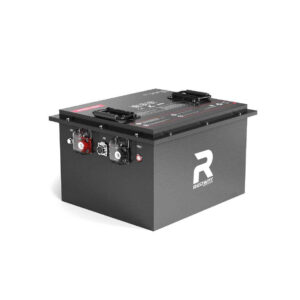What Are the Key Specifications of a 36V 100Ah Fast-Charging Golf Cart Battery?
A 36V 100Ah fast-charging golf cart battery combines voltage (36V) for power, capacity (100Ah) for runtime, and rapid-charge technology. It typically uses lithium-ion cells for efficiency, supports 1-3 hour charging times, and integrates safety features like temperature control. These batteries are designed for golf carts but also work in industrial and off-grid applications.
What Safety Features Are Integrated Into Fast-Charging Golf Cart Batteries?
Advanced safety mechanisms include multi-layered Battery Management Systems (BMS) for overcharge/over-discharge prevention, temperature sensors for thermal runaway mitigation, flame-retardant casings, and short-circuit protection. Some models add IP65 waterproofing and vibration-resistant designs for off-road use, ensuring compliance with UL 2580 and UN38.3 certifications.

Modern batteries employ multi-stage protection systems that activate within milliseconds of detecting anomalies. For instance, the BMS continuously monitors individual cell voltages and isolates faulty cells before issues escalate. Flame-retardant separators between cells prevent thermal propagation, while pressure relief valves safely vent gases during extreme conditions. High-end models feature ceramic-coated electrodes that resist dendrite formation – a common cause of internal short circuits.
“Our batteries undergo 23 distinct safety checks, including nail penetration tests and 50G shock resistance,” notes Redway Battery’s QA lead. “The aluminum alloy casing can withstand 1.2 tons of crushing force while maintaining insulation integrity.”
What Environmental Benefits Do Lithium Golf Cart Batteries Offer?
Lithium batteries reduce CO2 emissions by 40% compared to lead-acid, thanks to 95%+ efficiency versus 70-80%. They’re 98% recyclable, contain no toxic lead/acid, and last 4x longer, minimizing landfill waste. Solar-compatible models further cut carbon footprints by enabling renewable energy integration.
The production process for lithium batteries generates 62% less greenhouse gas per kWh than lead-acid alternatives. When used in solar storage systems, they enable 85-90% round-trip efficiency compared to lead-acid’s 65-75%, meaning more renewable energy gets utilized. Recycling programs recover 95% of cobalt, 85% of lithium, and 90% of nickel for reuse in new batteries. Manufacturers are increasingly using recycled materials – Redway’s latest cells contain 30% post-industrial lithium, reducing mining demands.
| Environmental Factor | Lithium Battery | Lead-Acid Battery |
|---|---|---|
| Energy Efficiency | 95% | 75% |
| Recyclability Rate | 98% | 99% |
| Toxic Components | None | Lead, Sulfuric Acid |
How Does Temperature Affect 36V 100Ah Battery Performance?
Lithium batteries operate optimally between -4°F to 140°F (-20°C to 60°C). Extreme cold reduces capacity temporarily by 10-20%, while heat above 122°F (50°C) accelerates degradation. Built-in BMS systems adjust charge rates thermally, and some models include self-heating cells for sub-zero environments to maintain 85%+ efficiency.
Expert Views
Modern 36V 100Ah lithium batteries are revolutionizing mobile power,” says Dr. Elena Torres, Redway’s Chief Engineer. “We’ve integrated graphene-doped anodes that boost charge acceptance by 30% without compromising cycle life. Our latest models even support vehicle-to-grid (V2G) capabilities, allowing golf carts to feed energy back into homes during peak hours—a game-changer for sustainable energy ecosystems.
FAQs
- How Long Does a 36V 100Ah Battery Last on a Single Charge?
- In a standard golf cart, expect 35-50 miles per charge. Runtime varies with load: 450 lbs (204 kg) on flat terrain yields maximum range, while hilly courses or cargo loads above 900 lbs (408 kg) reduce it by 30-40%.
- Are These Batteries Compatible With All Golf Cart Models?
- Most 36V systems work with Club Car, EZ-GO, and Yamaha carts manufactured post-2000. Adapter kits are available for older models. Always verify terminal types (F1/F2 or SAE) and physical dimensions before purchase.
- What Warranty Periods Are Typical?
- Premium brands offer 5-8 year warranties, covering defects and capacity drops below 70% within the period. Pro-rated warranties after Year 3 are common. Ensure the warranty includes thermal and mechanical stress protection.
